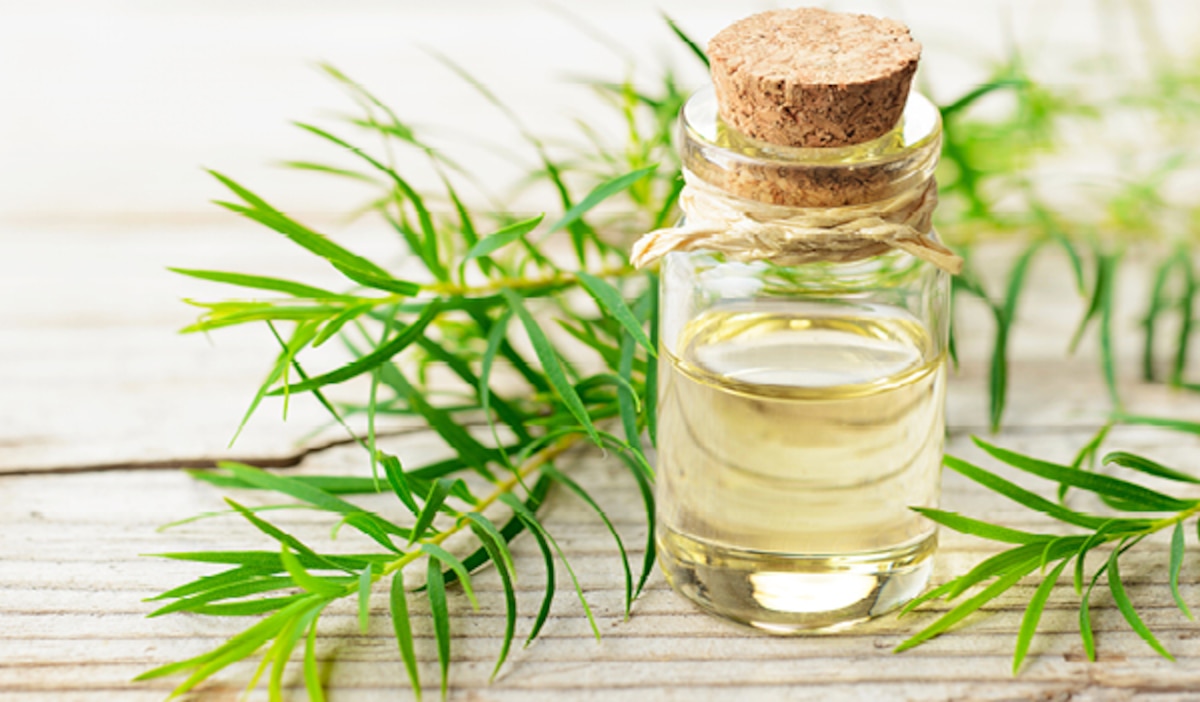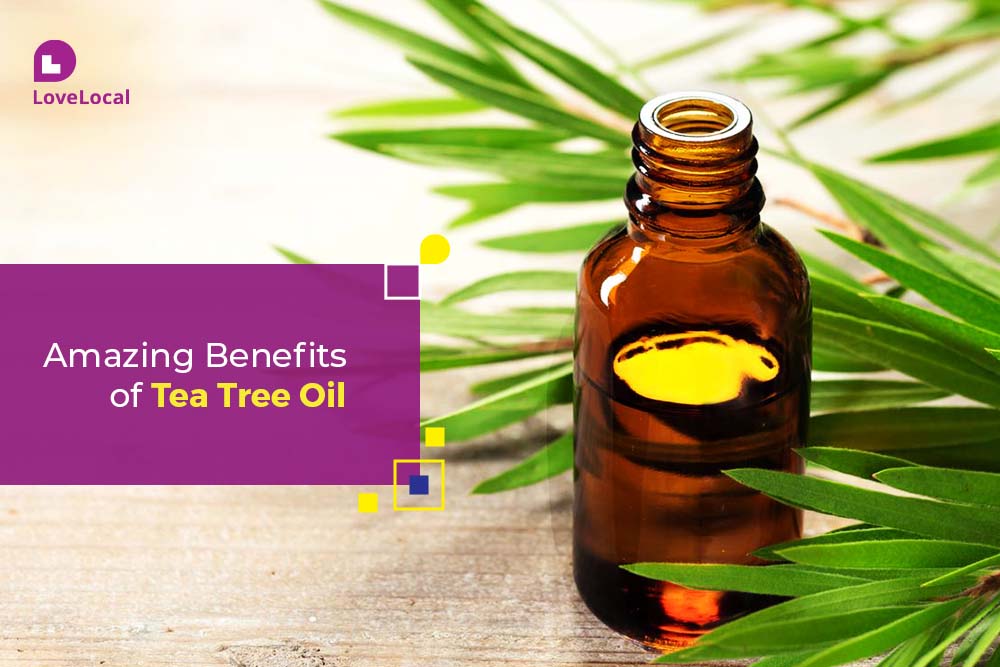Tea tree oil, derived from the leaves of the Melaleuca alternifolia tree native to Australia, has gained significant popularity in recent years for its versatile properties and numerous potential benefits. Used in traditional medicine for centuries, tea tree oil has become a staple in many households worldwide. In this blog, we will delve into the benefits of tea tree oil, uses, and potential side effects of tea tree oil, providing you with valuable insights to help you make informed decisions about incorporating this natural remedy into your daily routine.
The Benefits of Tea Tree Oil

- Anti-inflammatory and Antiseptic Properties:
One of the most significant benefits of tea tree oil lies in its powerful anti-inflammatory and antiseptic properties. It can help soothe and reduce inflammation, making it an effective remedy for skin conditions such as acne, eczema, and psoriasis. Its antiseptic qualities also make it useful in treating minor cuts, scrapes, and wounds.
- Antibacterial and Antifungal Agent:
Tea tree oil possesses potent antibacterial and antifungal properties, making it an excellent natural alternative to conventional antimicrobial agents. It can help combat various bacterial and fungal infections, including athlete’s foot, nail fungus, and yeast infections.
- Acne Treatment:
Tea tree oil uses for skin for are many. Gor example, due to its antimicrobial and anti-inflammatory properties, tea tree oil has been widely recognized for its effectiveness in treating acne. It helps to kill acne-causing bacteria, reduce inflammation, and unclog pores, making it an excellent addition to your skincare routine to enjoy the tea tree benefits for skin.
- Scalp and Hair Health:
Tea tree oil benefits for hair are famous all over the world. Tea tree oil can promote a healthy scalp and hair, in fact, tea tree oil for hair growth is very popular. It may help alleviate dandruff, dryness, and itchiness, as well as combat scalp conditions such as seborrheic dermatitis. Additionally, tea tree oil uses for hair also include the fact that it can help control excess oil production, leaving your hair looking fresh and revitalized. This is one of the most popular benefits of tea tree oil.
- Nail Health:
Tea tree oil can be beneficial for maintaining healthy nails. Its antifungal properties make it effective in treating nail fungus infections and promoting the growth of healthy nails.
- Ear Health:
This is one of the best tea tree essential oil benefits. Tea tree oil, when properly diluted, can be used to treat ear infections. It possesses antimicrobial properties that can help combat bacteria and fungi responsible for ear infections.
- Natural Insect Repellent:
Talking about the various benefits of tea tree oil– Tea tree oil’s strong aroma acts as a natural insect repellent. It can help keep pesky insects like mosquitoes, lice, and fleas at bay without the need for harmful chemicals found in commercial repellents.
- Respiratory Health:
Inhalation of tea tree oil vapors or using it in a steam inhalation can provide relief from respiratory conditions like congestion, cough, and sinusitis. Its expectorant properties may help clear the airways and alleviate respiratory discomfort.
- Natural Deodorant:
Another one of the tea tree benefits is that the antimicrobial properties of it make it an excellent ingredient for natural deodorants. It can help control body odor by inhibiting the growth of odor-causing bacteria.
- Household Disinfectant:
Tea tree oil can be added to homemade cleaning solutions to create a natural disinfectant for surfaces around the house. It can help eliminate germs, bacteria, and mold without the use of harsh chemicals.

Remember, it is crucial to use tea tree oil responsibly, following proper dilution guidelines and patch testing before using it on the skin. While tea tree oil offers numerous benefits, individual reactions may vary, so it’s always a good idea to consult with a healthcare professional if you have any concerns or pre-existing conditions.
- Tea tree oil uses for skin:
Tea tree oil can be used topically for various skincare purposes. It can be applied directly to the skin, diluted with a carrier oil, or incorporated into homemade skincare products such as cleansers, toners, and moisturizers- it’s a brilliant way to enjoy the tea tree oil benefits for skin.
- Household Cleaning:
Thanks to its antibacterial and antifungal properties, tea tree oil can be a valuable addition to your cleaning arsenal. It can be used to create natural disinfectants for countertops, floors, and bathroom surfaces, helping to keep your home clean and free from harmful microbes.
- Oral Health:
Tea tree oil can be found in some natural toothpaste and mouthwash products due to its antimicrobial properties. It may help reduce bad breath, combat oral infections, and soothe gum inflammation. However, it is important to note that tea tree oil should never be swallowed during tea tree uses, as it can be toxic when ingested.
- Aromatherapy:
The pleasant, medicinal scent of tea tree oil makes it a popular choice for aromatherapy. It can be diffused or added to bathwater to promote relaxation, alleviate stress, and provide respiratory support. It is a great way to enjoy the benefits of tea tree oil.

Potential Side Effects and Precautions:
While benefits of tea tree oil are many, it is essential to exercise caution when using it. Here are some potential side effects and precautions to be aware of:
- Skin Sensitivity:
Is tea tree oil good for skin? Yes but undiluted tea tree oil may cause skin irritation, especially in individuals with sensitive skin. It is crucial to perform a patch test before applying it to larger areas of the skin and always dilute it with a carrier oil when necessary.
- Allergic Reactions:
Although it is rare, some individuals may experience allergic reactions to tea tree oil. If you notice any signs of an allergic response, such as a rash, itching, or swelling, discontinue use immediately and seek medical advice.
- Toxicity:
Tea tree oil should never be ingested, as it can be toxic and cause adverse effects such as confusion, drowsiness, and even coma. It is also toxic to pets, particularly cats, and should be kept out of their reach.
- Interaction with Medications:
Tea tree oil may interact with certain medications, such as antifungal drugs and immunosuppressants. If you are taking any medications, consult with your healthcare provider before using tea tree oil to avoid any potential interactions.
It’s important to note that the majority of people use tea tree oil without experiencing any adverse effects. However, it is always recommended to use tea tree oil in moderation to enjoy the benefits of tea tree oil, following proper guidelines for dilution and application. If you have any concerns about the potential side effects of tea tree oil, consulting with a healthcare professional is advisable.
Conclusion:
Tea tree oil has gained popularity as a natural remedy for various ailments due to its impressive range of benefits and uses. From skincare to household cleaning, it offers a versatile and effective solution for many common concerns. However, it is essential to be mindful of potential side effects and exercise caution when using it, while trying to enjoy the benefits of tea tree oil. By understanding its properties and taking appropriate precautions, you can harness the power of tea tree oil safely and effectively in your daily life.



